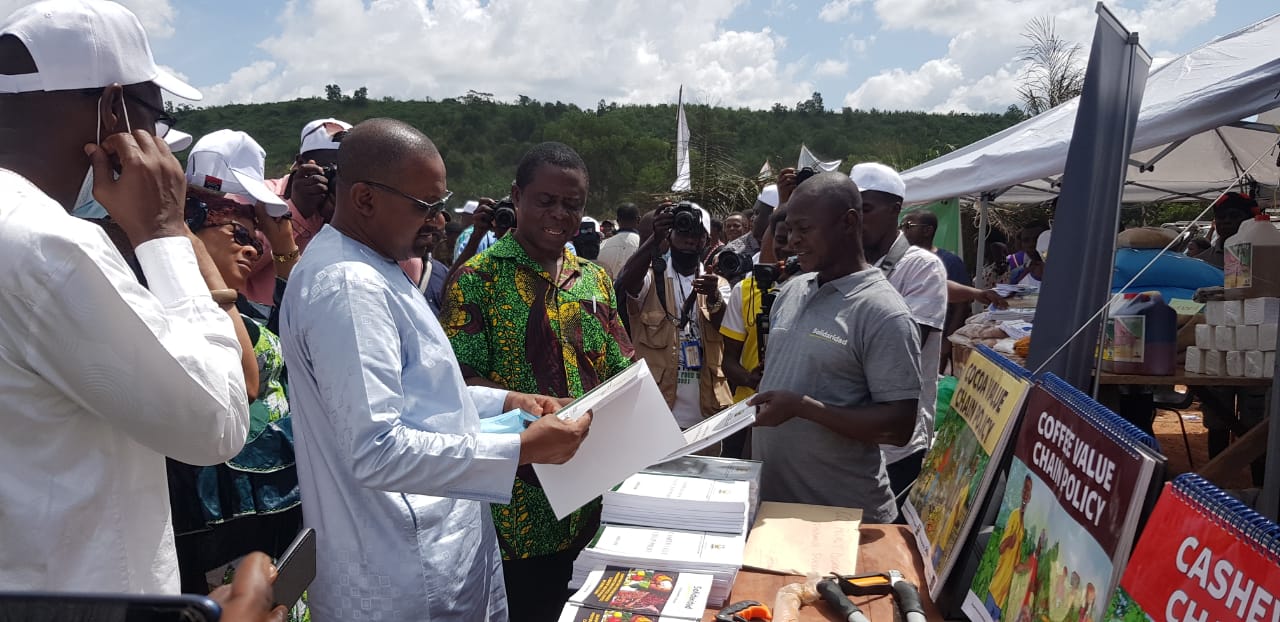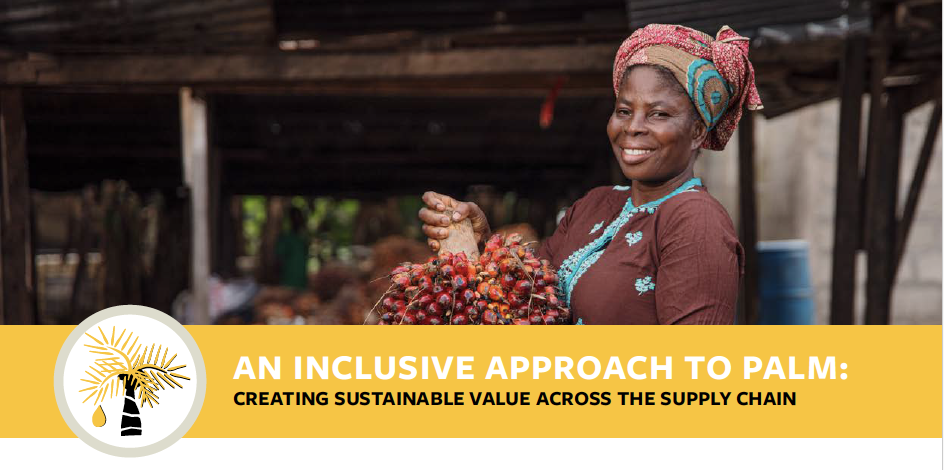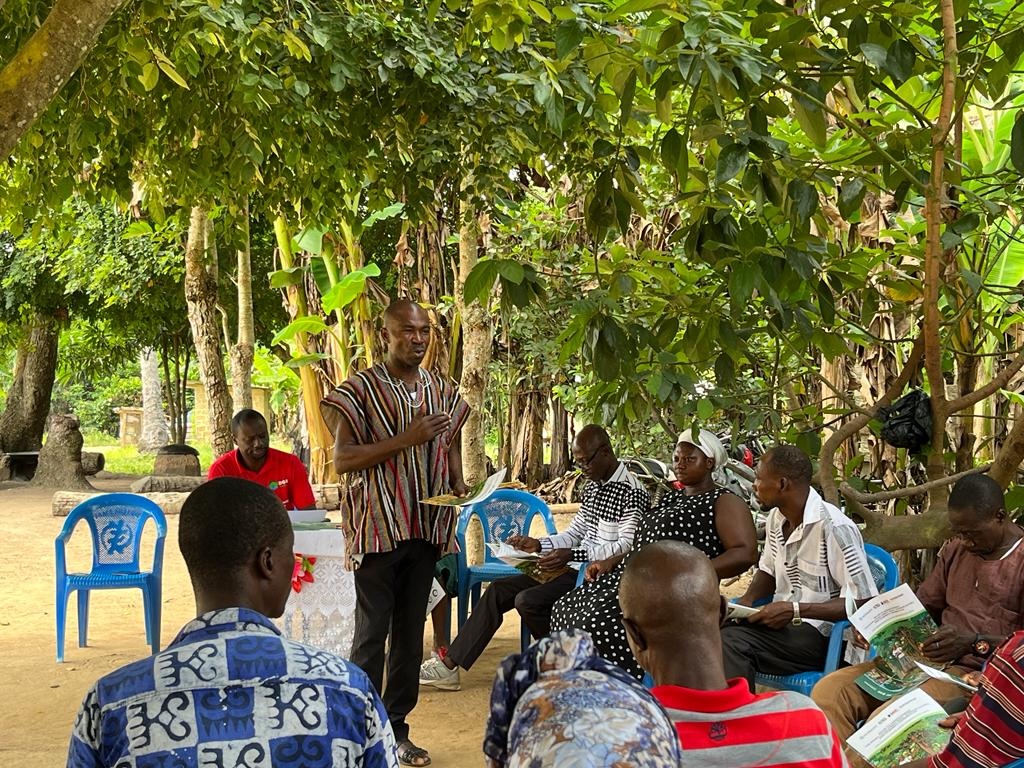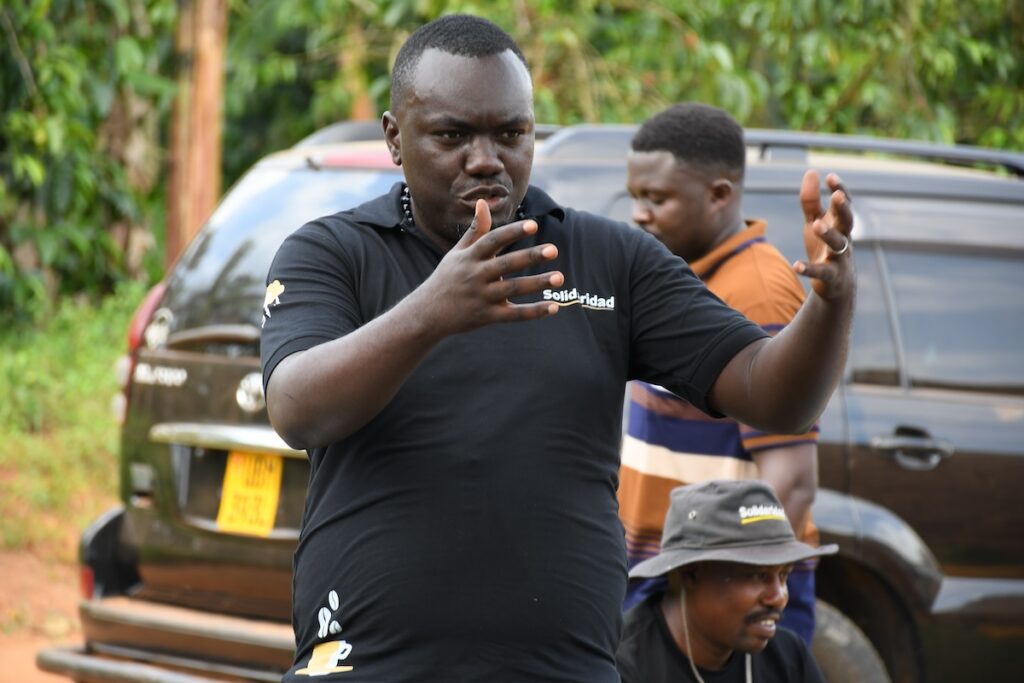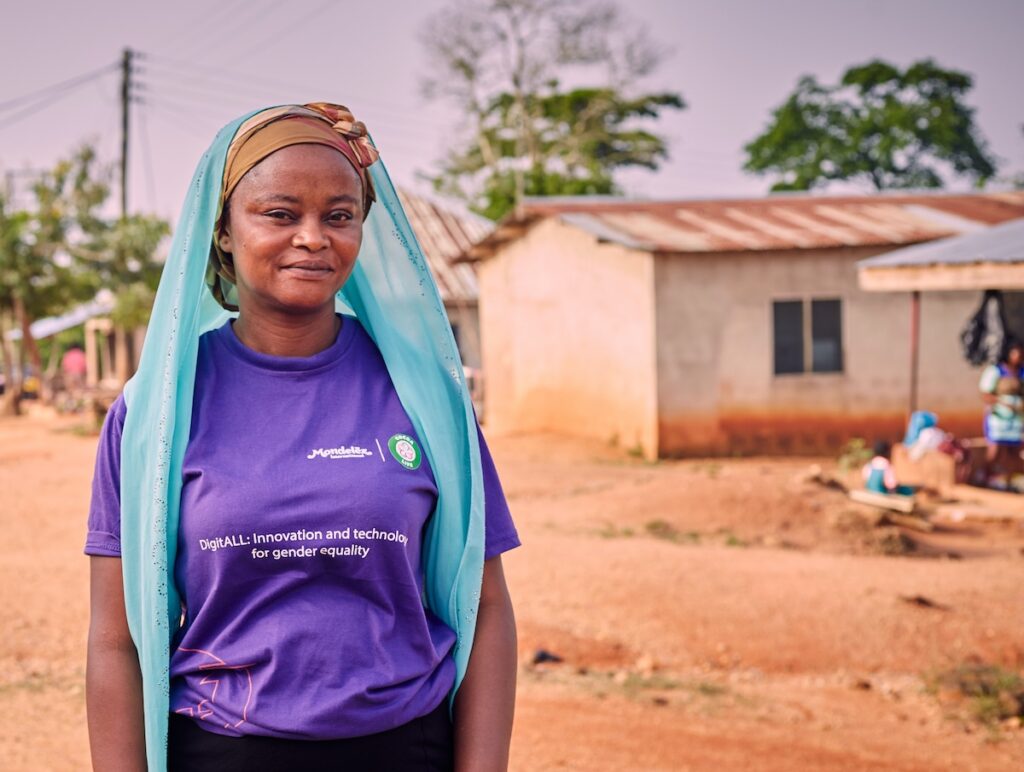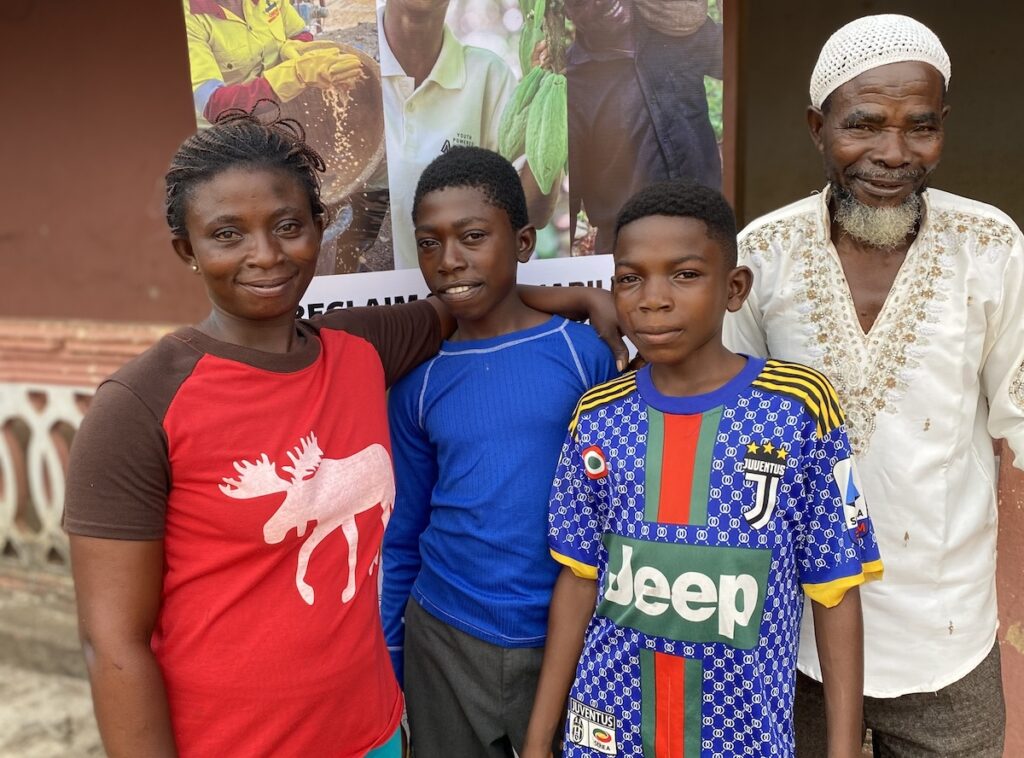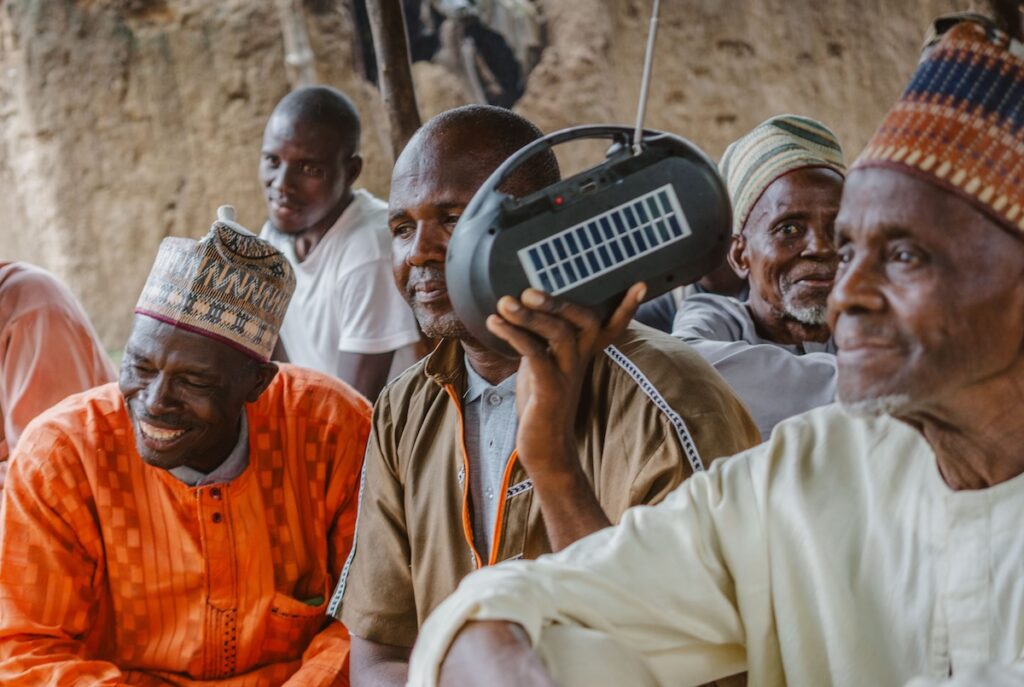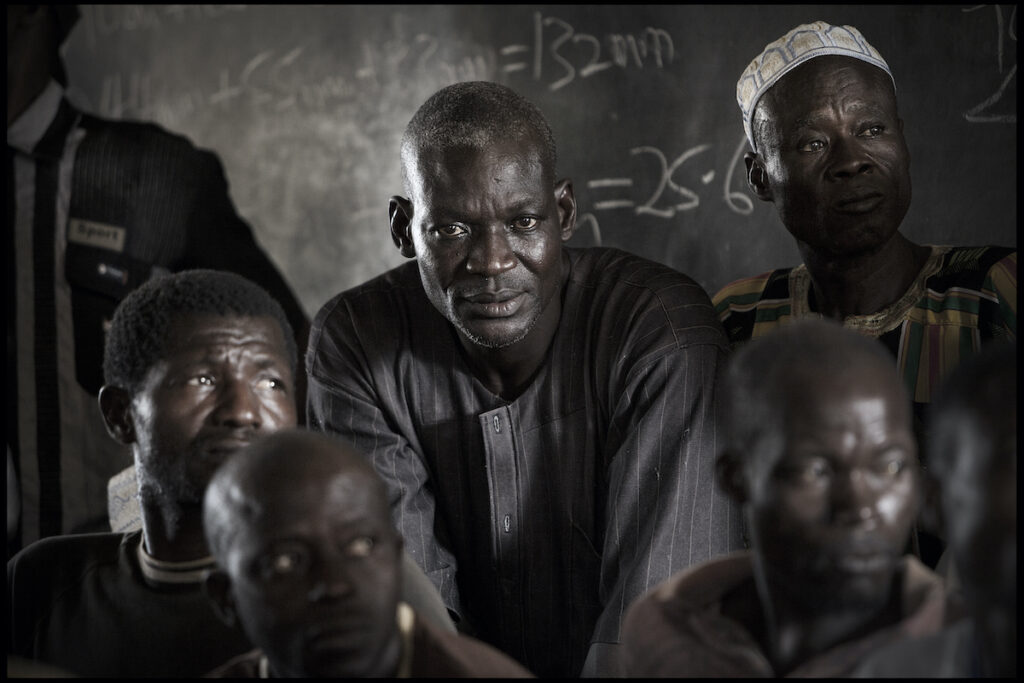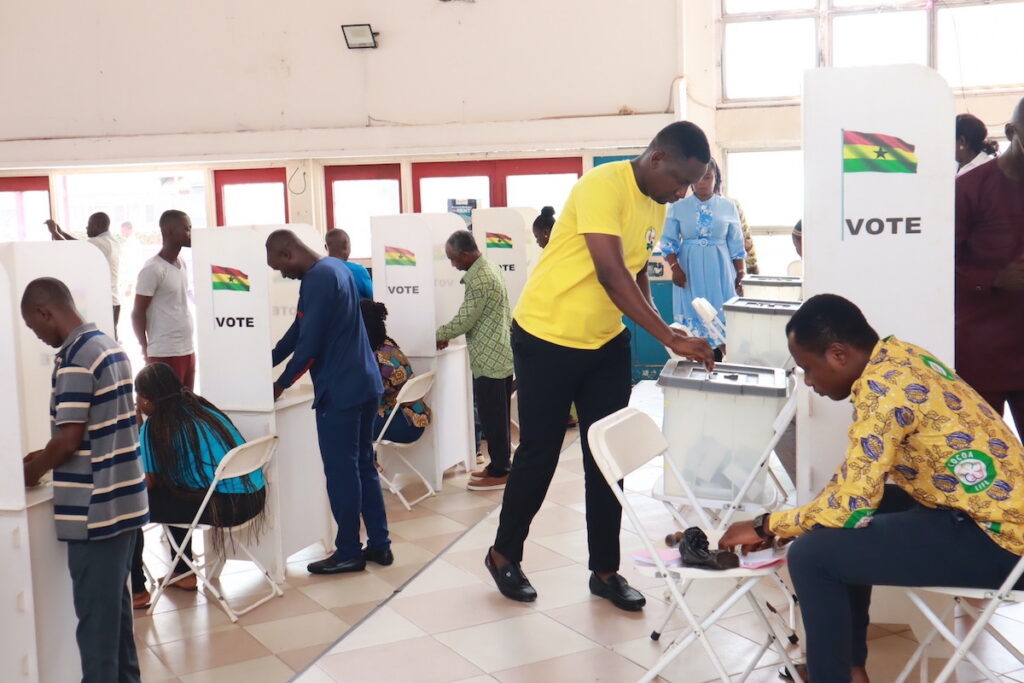He said Solidaridad has been a dependable partner to the government in its efforts to improve the sector and praised the organization for leading the popularization of the National Cashew, Coffee and Cocoa policies. The policies outline strategies for tapping the full potential of the crops by improving farmers’ incomes and livelihood, creating jobs, addressing food security deficit, and boosting farmers’ sustainable production capacity.
The Vice President made these remarks when he visited Solidaridad’s booth at this year’s commemoration of World Food Day on 16 October, in Koindu City in the Kono district of Sierra Leone.
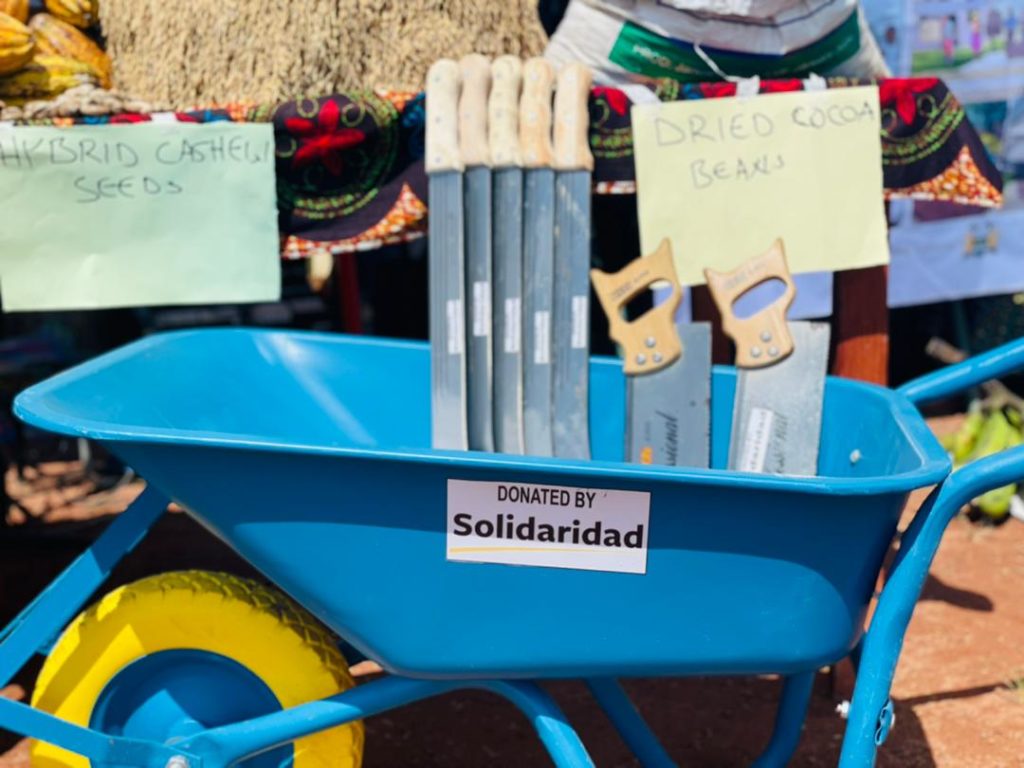
H.E. Jalloh, who took copies of the policies at the booth, encouraged District Agriculture Officers to use them as a guide in their work within the three sub-sectors.
I will also appeal to Solidaridad to help our farmers to become aware of these policies as we seek to improve the production of these commodities.
Vice President H.E. Jalloh
Under the theme “Our actions are our future, Better Production, Better Nutrition, Better Environment and a Better Life”, H. E. Jalloh encouraged stakeholders to reflect on innovative approaches and new technologies that will enable crops to be resilient to climate change impacts.
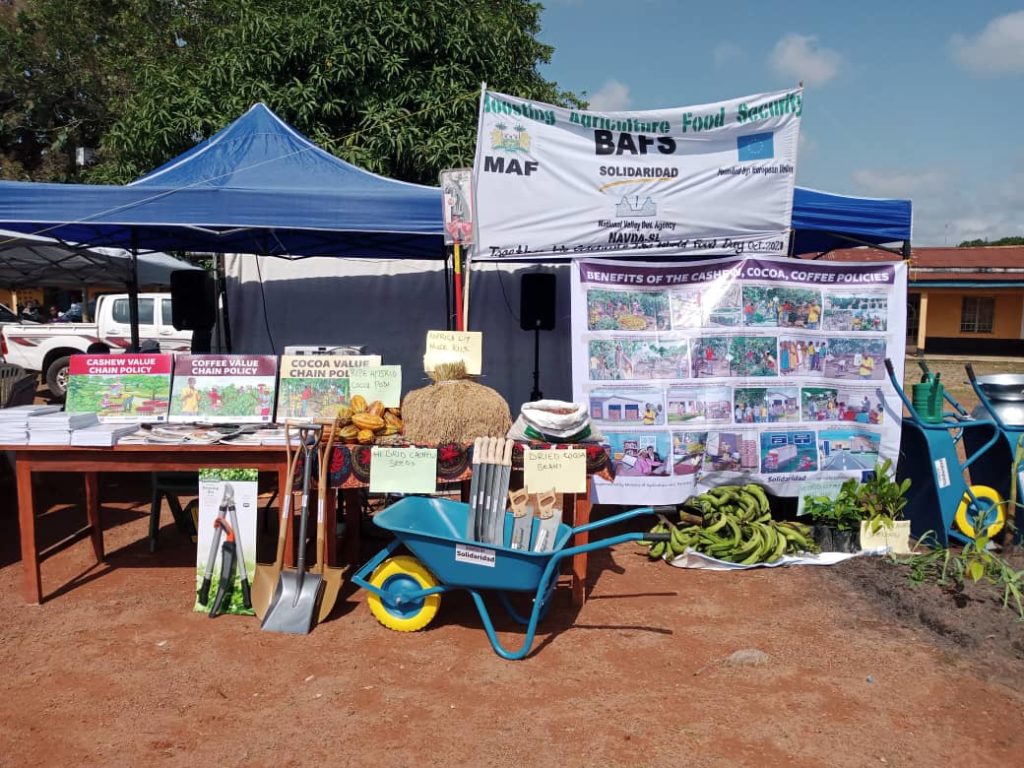
Solidaridad used its booth to demonstrate its innovative cocoa intercropping system to promote food diversification, modern tools for the adoption of new technologies, as well as creating awareness of climate-smart agriculture for climate change mitigation using video screening.
In its commitment to support sustainable food systems and improve food security in Sierra Leone, Solidaridad donated many critical agriculture inputs, such as wheelbarrows, water cans, cutlasses and gardening forks to the Ministry of Agriculture and Forestry to be presented to farmers at the National Best Farmer awards.
The event brought together other development partners including, the World Food Programme, Food and Agriculture Organization of the United Nations (FAO), International Fund for Agricultural Development, Irish Aid and Helen Keller Foundation.

